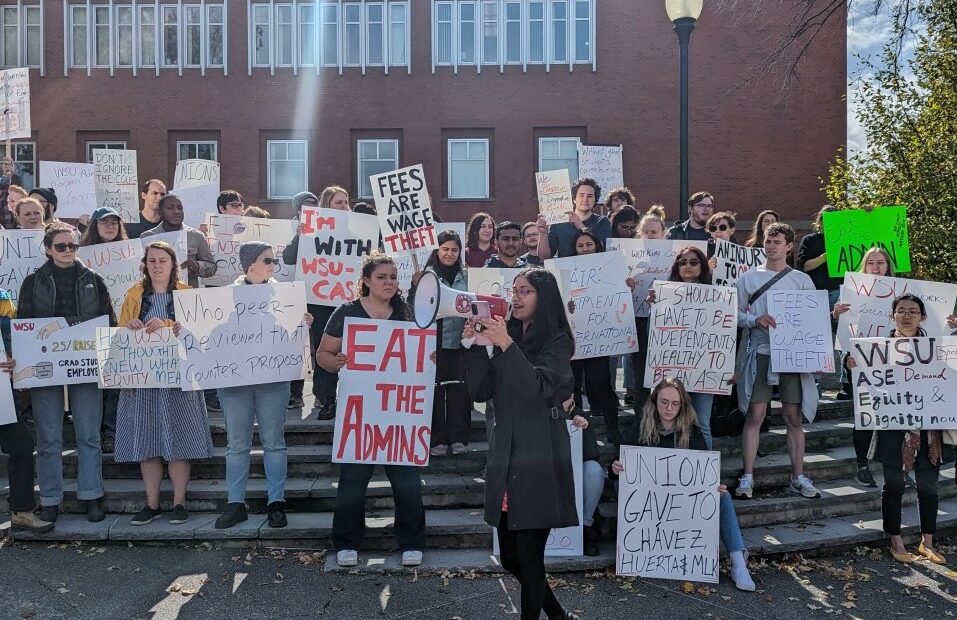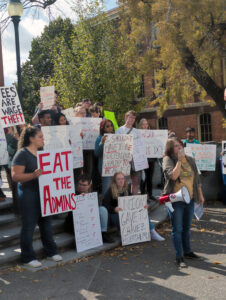
Unionized WSU student workers going on strike
Listen
(Runtime :48)
Read
After more than a year of negotiating with Washington State University, unionized student workers are planning to go on strike.
“Teaching assistants will no longer be teaching their classes and research assistants will be putting a halt to their lab work,” said Gavin Doyle, a WSU Coalition of Academic Student Employees union member and doctoral graduate student in WSU’s English department.
Although the university and WSU-CASE have ironed out certain agreements, a current sticking point in the contract is healthcare coverage.
The healthcare is free for student workers, Doyle said, but the high deductible makes medical care challenging to afford.
“We are invested in the education and the betterment of this university. We want to see this place thrive,” Doyle said. “We can’t do it with people not being able to afford their medical bills.”

Members of the WSU student worker union gave speeches during a day of action on September 27. Similar actions are planned for the first day of the strike on Wednesday, January 17, on the WSU Pullman campus, according to student union members. (Credit: Lauren Paterson / NWPB)
Last year, the university spent $4.2 million providing healthcare to graduate student workers, said Phil Weiler, vice president of marketing and communications for WSU.
Students who aren’t employed by the university and have to pay their own premiums could see a cost increase if the union is successful in getting a new plan, Weiler said.
Healthcare carriers need time to develop bids. In this case, it could push decisions on a healthcare plan for student workers into next month, Weiler said.
The restrictive insurance network on the current plan makes it harder for students outside the Pullman area, especially student workers at branch campuses and rural research stations, to get the healthcare they need, Doyle said.
“We’re here to fight for change not just for ourselves but for future academic student employees,” Doyle said. “Striking is simply a tool to reach that goal.”
The strike will begin 7 a.m. Wednesday, Doyle said. “We’re going to be out there chanting, marching and singing in solidarity with each other.”
Hundreds of student employees walking off the job means classes, labs and projects won’t have teaching assistants to lead them.
“As we work through next steps, I want to reaffirm our commitment to ensuring classes proceed without impediment,” said WSU President Kirk Shulz in a letter sent on Tuesday.
There are over 1,800 students in the union, and more than 1,100 members voted to authorize a strike. “I don’t think the university knows what it’s in for,” Doyle said.
















